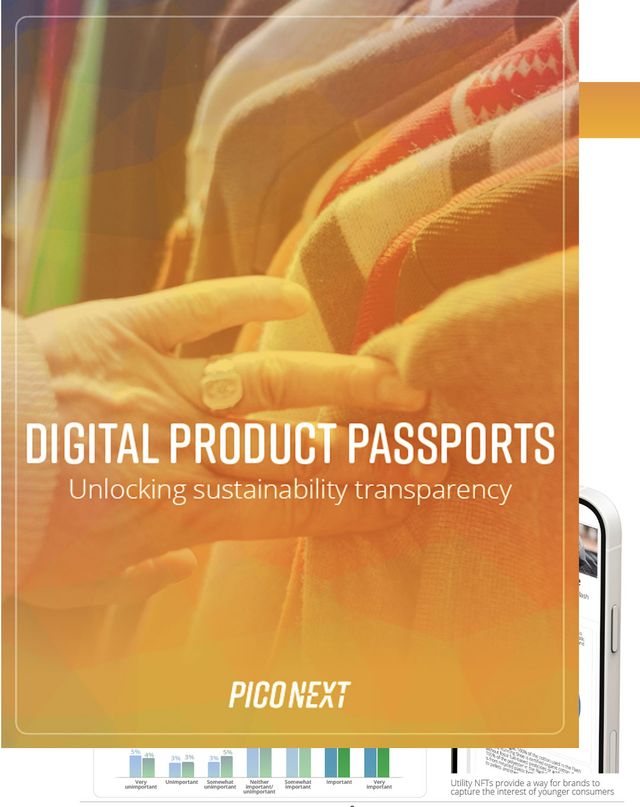Over the last several years, it’s clear that travellers want sustainability options as they explore new places. In fact, 83 percent of travellers worldwide think sustainable travel is vital, and 73 percent of travellers would be more likely to choose a hotel if it has sustainability practices, according to a study of 29,000 travellers by Booking.com.1
Sustainability initiatives attract customers
Many travel suppliers have launched sustainability initiatives - whether that’s minimising single-use plastics, sourcing locally grown food, or reducing on-property water usage. One of the most popular travel sustainability initiatives is capturing or offsetting the carbon emissions that travellers produce during their journeys.
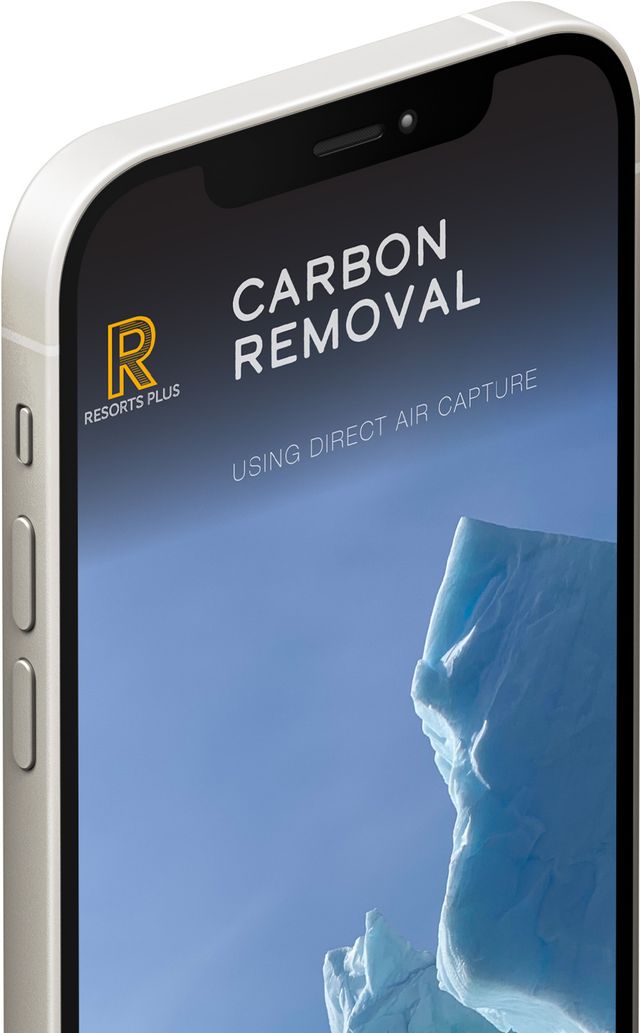
But sustainability programmes lack transparency
Often, these sustainability initiatives — especially carbon removal ones — encounter transparency and verification issues – the end-customer isn’t able to see the benefit they’re getting by participating in the programme. It’s unclear whether the carbon has indeed been removed or offset from the atmosphere, by what method, and if the removal/offset has been audited. Or, customers don't have visibility into if conservation, recycling, or sustainable sourcing initiatives are really having an impact.
In fact, recent litigation highlights the risks of engaging in these programmes without a transparency plan. Delta Air Lines, for example, was hit with a class action lawsuit alleging underdelivery on carbon impact because of fraud and misrepresentation by carbon vendors.
Public ledgers: Driving transparency & accountability
Travel companies – whether that’s accommodation providers, resorts, transport providers, tour operators, cruise lines or restaurants – can ensure transparency and accountability for their carbon neutral programmes by using distributed public ledgers. They can do so by producing a Sustainability Action Report that shows stakeholders the actions that have been taken in their carbon sustainability programme.
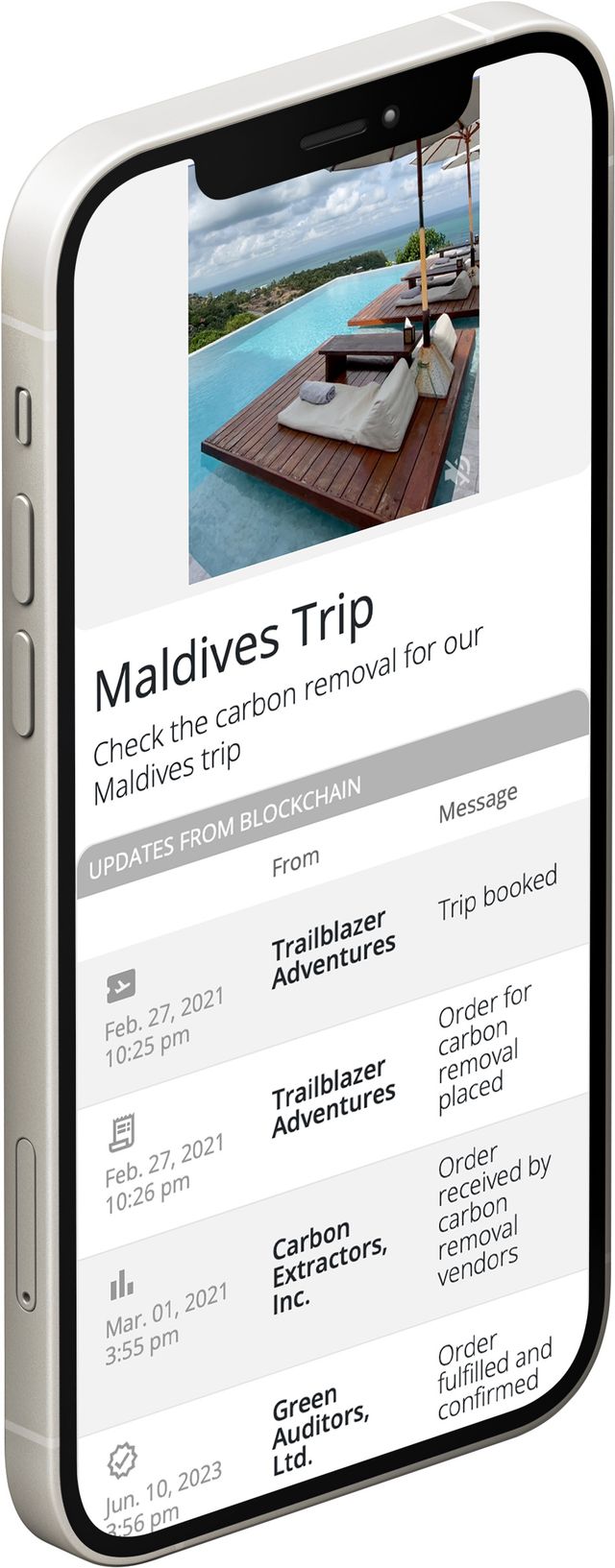
Sustainability Action Reports display progress at-a-glance
With a Sustainability Action Report on a distributed public ledger, travel companies can register their carbon sustainability programme publicly to drive transparency. Then, when events occur related to their carbon removal programme, the company and its vendors can push related carbon events to the Sustainability Action Report. These events can include things like:
- Carbon removal ordered
- Carbon removal initiated by vendor
- Carbon removal completed by vendor
- Audit completed
- And other related programme events
The result is increased transparency into your sustainability initiatives that is publicly inspectable and globally available. In addition, the system is distributed so that multiple authorised vendors in your programme can report on their activities.
Sustainability Action Reports can encompass broader conservation goals
These Sustainability Action Reports can also include initiatives from your broader sustainability objectives, like water conservation, food waste reduction, recycling, energy efficiency, sustainable sourcing and more. Actions you take in any of these categories can be represented on public ledgers as events, allowing your stakeholders to join along with you in your progress to become a more sustainable organisation.
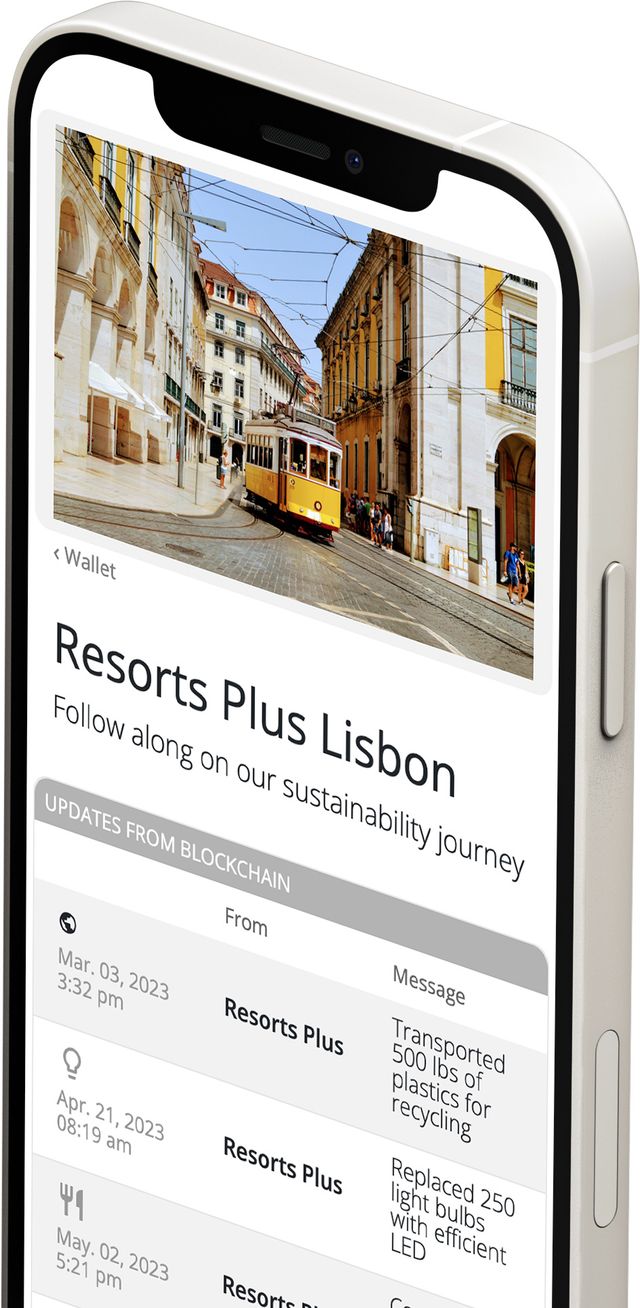
Example: Sustainable tour operator
For example, as part of the sustainability promise for its cultural expeditions, a travel tour operator can offer to remove carbon from the atmosphere for each trip participant. Using a public ledger, it issues a multimedia token to represent the brand promise of its carbon removal.
Then, participants in the climate sustainability supply chain push events to the public ledger representing actions they’re taking – including the tour operator itself, vendors who initiate the carbon removal, and companies who audit the climate actions. The tour operator builds trust and transparency when their end-customers view authenticated climate sustainability actions in an easily consumable Sustainability Action Report.

But, I already have an auditor or certification programme
Many companies already have an auditor verify their sustainability programmes, which results often in a periodic report on progress. But many times, end-customers don’t take the time to read these important reports, nor do they have all the information they need in one place, in an at-a-glance format to verify the impact of these sustainability programmes.
Public ledger technology takes input from the multiple actors in this process – including from auditors – and allows end-customers increased transparency into how funds and efforts are deployed. It adds to existing auditing and certification programmes by showing end-users the actions you're taking — not just telling about them.
Are public ledgers (blockchains) sustainable?
New technology changes in Ethereum-based blockchains released in 2022 allay many of the previous concerns about resource usage and electricity consumption. The result of the new proof-of-stake consensus mechanism is a reduction in annualised electricity consumption by more than 99.988% by the blockchain network, and a reduction of its carbon footprint by approximately 99.992%, according to Ethereum.org2. Further, Polygon has a commitment for their network to be carbon-negative as of 20223. The result is a sustainable solution to match your ongoing carbon-neutral efforts with your customers.
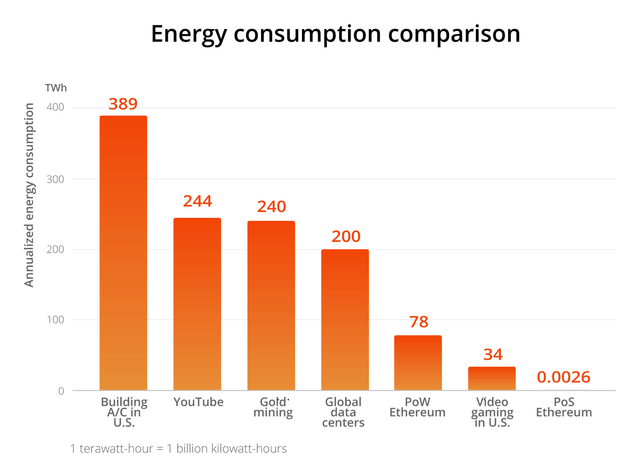
Benefits of Sustainability Action Reports
Launching a Sustainability Action Report allows travel providers to benefit from (1) increased transparency with customers, (2) the ability to verify actions, and (3) coordination among different parties. The result is the ability to show customers that you're making tangible progress on climate and sustainability action — versus just talking about it.
- Transparency. Because Sustainability Action Reports show the actions being taken in relation to sustainability and climate objectives, you can demonstrate progress to customers as you work towards your goals. The reports provide both immediate, as well as ongoing reporting to view in-process status and scheduled actions.
- Verification. The decentralised nature of blockchains allows different parties working on your sustainability goals to verify what they're doing — painting a more complete picture of what's going on than trusting the assertions of a single actor.
- Coordination. Sustainability Action Reports help coordinate multiple providers and consolidate action tracking across initiatives in a single, easy-to-consume report. These reports can be used to rally different stakeholders — whether that's internal teams, management, partners, or customers/guests — around the cause.
See a preview of your Sustainability Action Report
See how Sustainability Action Reports can help your carbon-neutral sustainability efforts through increased transparency with your end-customers. See how to get a preview of a Sustainability Action Report that your organisation can show to customers today.

